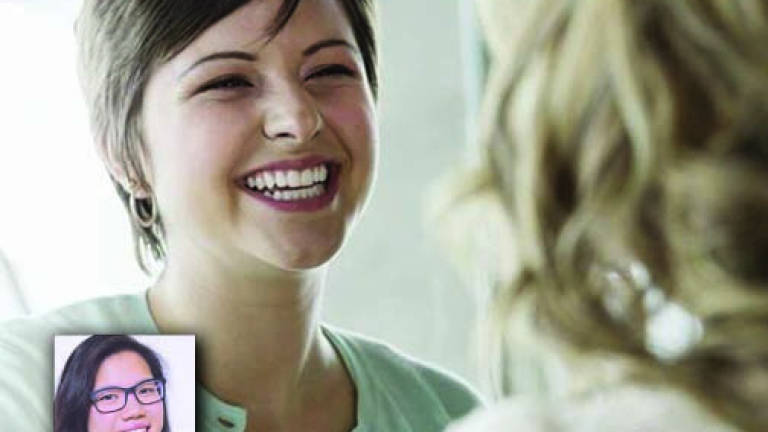Not just words

AS a writer, language and speech are essential parts of my daily life. I can’t imagine being stripped of my ability to verbally convey thoughts and ideas. A few weeks ago, I was listening to a radio segment on a different form of communication, one we often don’t think about but use daily.
We communicate in this manner when we raise an eyebrow, smile knowingly or waggle an index finger. It happens when we turn our bodies away from someone or pump our fists high in the air. Non-verbal communication happens every day, and is an integral part of the way we share and exchange emotions, thoughts, attitudes and needs.
Although we use this form often, many of us who are able to communicate verbally think of it as complementary to speech. We forget the importance of understanding that communication happens in countless ways. For some communities, words may be foreign and incomprehensible.
Throughout my life, I’ve always loved the power of words. It shaped my interests and drew me to writing as a career choice. I’d often quote playwright Edward Bulwer-Lytton’s famous line, “The pen is mightier than the sword …” when asked how I wanted to make a difference in the world.
The radio segment that day, however, made me think about the emphasis that I’ve been placing on speech and language as the “best” way to connect with individuals. I’m beginning to think that it may be a misplaced idea, an error by assumption.
There are so many environments where speech becomes a divide impossible to cross, hence the term “language barrier”. Signs and gestures become our primary means of communicating, but it can be a challenge to realise that we need to switch up our systems.
Funnily enough, we often assume that people cannot catch what we are saying instead of realising that they simply do not understand the sounds we are making. We then repeat our sentences at a slower pace or speak louder, but it’s an exercise in futility.
At such times, non-verbal communication comes to the fore. I recently visited a rural community in Vietnam, and communicating with the locals was near impossible. Asking where to eat, what to see or how the weather was required countless gestures, endless pointing at items and many swallowed sighs of exasperation.
The radio segment I was listening to that day spotlighted Augmentative and Alternative Communication (AAC), which refers to every communication system with the exception of speech. Signs, body language and gestures are a form of unaided communication systems parked under AAC.
Aided communication systems, on the other hand, use tools and resources to aid communication, such as images, symbols, colours, audio and increasingly in recent years, digital equipment. Individuals with speech or language disorders may rely heavily on AAC to convey thoughts and ideas.
I asked myself if I have taken time and effort to develop my AAC skills in hopes of becoming a more rounded communicator. I haven’t, because I’d assumed that speaking and writing well was all I needed.
As global citizens, we have a responsibility to understand those around us. Sometimes, I find myself looking at the world and expecting every person to be like me, to understand what I am saying or communicating.
But the reality is that we are all communicators exchanging what we think, see, feel and hope in different ways. Verbal communication is just one method of doing so, and there are many more ways that we can learn to become better and more effective communicators.
Comments: letters@thesundaily.com